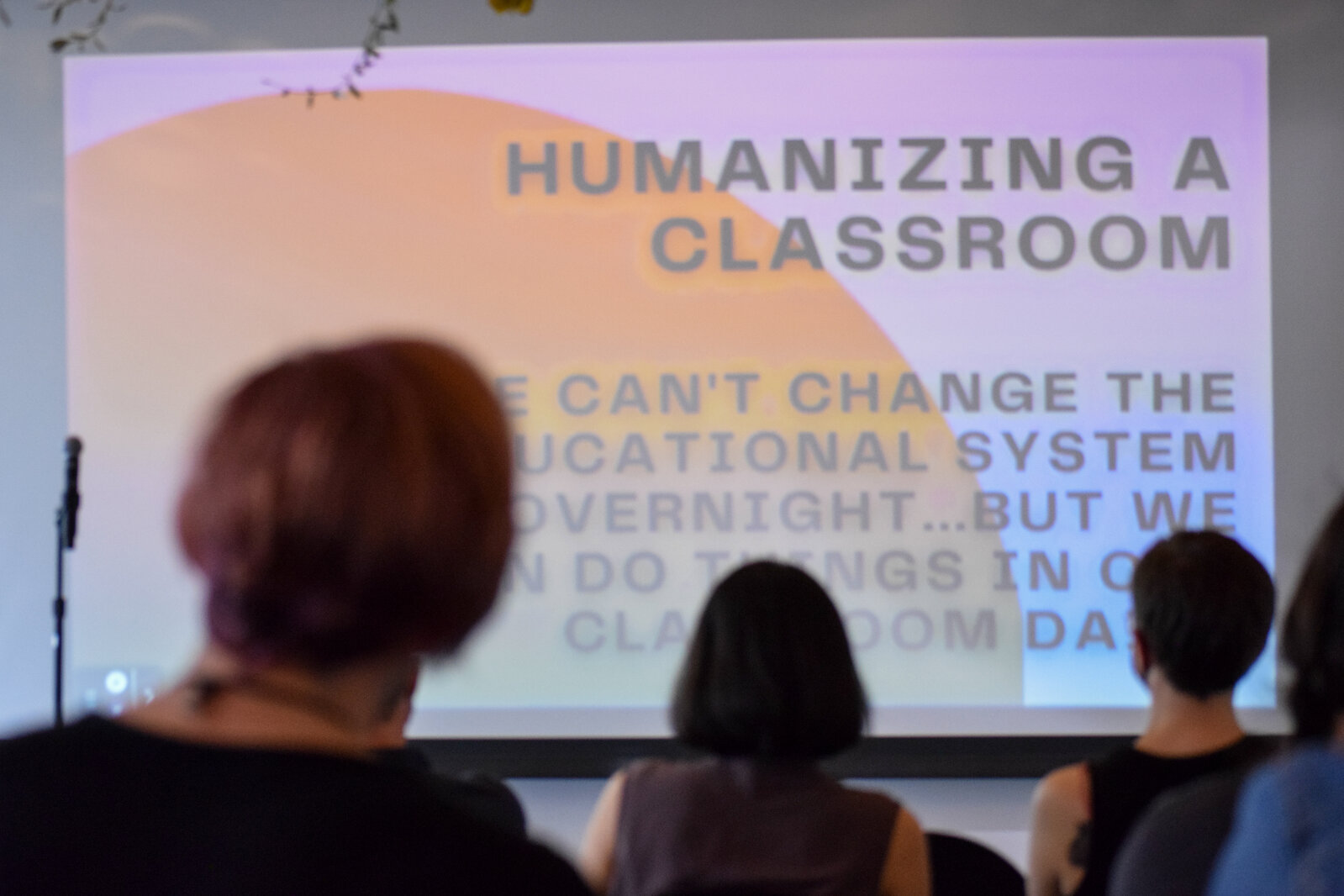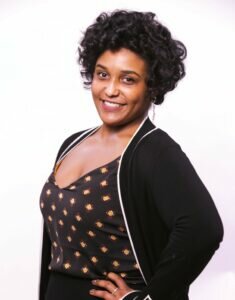Learning Series | Access and Arts Education
May 20, 202310:30 am - 12:00 pm
This event is free with registration. Captioning is provided.
Face masks are highly encouraged for this event.

Teacher Institute Culminating Projects, MCA Chicago, June 11, 2022. Photo: Vivian Zamora
About the Event
This installment of the Learning Series begins a conversation that many educators can utilize: the dedication of more attention and resources towards increased accessibility in public spaces, including in classrooms. Some questions this dialogue hopes to address are:
- How can your classroom, curriculum, and approach meet the needs of all your students?
- How can teachers successfully support students with disabilities in the classroom, in all the various and compound ways it may show up?
Joining us for this event are disability rights activists Kennedy Healy (Crip Crap Media) and Whitney Hill (SPORK!) to inform us on some ways to be more knowledgeable and direct advocates for Chicagoland students.
About the Speakers
Kennedy Healy (she/they) is a Fat, Queer, Crip writer and media maker. From Omaha, Nebraska, and now based in Chicago, she holds a Bachelor of Arts in Women and Gender Studies with an individualized concentration in Disability Studies from DePaul University. Healy has experience working directly with people with various types of disabilities in nonprofit settings and consulting on disability and accessibility in medical, academic, arts and culture, and other industries. Her visual art and photo project (made in collaboration with Marley Molkentin) titled Care has been featured at Gallery 400, in the Chicago Reader, and on the Disability Visibility Project blog. Their musical Care: The Musical was a finalist for the The William S. Yellow Robe Jr. Playwright Residency and the recipient of Residency Fellowships from 3Arts/Bodies of Work and the Ragdale Foundation. Healy’s is currently working on a television show and children’s books.
Healy is the founder of Crip Crap, a podcast, blog, and consulting firm that launched in December 2021. “Crip” is a term reclaimed by people with disabilities that is derived from an ableist slur. When we say the words crip and disability, we are using expansive senses of these terms to engage in cross-disability work. This takes into account crip, sick, mad, ill, neurodivergent, Deaf, blind, and other disabled people and adjacent communities. Crip Crap understands the liberation of disabled people is intertwined with the liberation of all marginalized people, and are committed to creating intersectional work that takes into account race, class, gender, sexuality, size, faith, etc. While their work is created first for people with disabilities, they invite others to learn about disability culture through it.

Whitney Hill. Image courtesy of the speaker.
Whitney A. Hill (she/her) is a specialist on accessibility with over a decade of experience in program management and communication. Her background in universal design and public accessibility combined with her personal background of identifying as someone with a disability gives her a unique skill set to connect individuals with needed services, while also empowering them to advocate for themselves
Founded and directed by Hill, SPORK! is a 501 (c) 3 nonprofit for people who have Cognitive, Physical, and Non-Apparent disabilities, directed and managed by people with disabilities. Their mission is to provide a unique and authentic voice to the Disabled community by documenting and highlighting the lived experiences of the individuals and businesses within.
Funding
Major support for Learning Programs at the Museum of Contemporary Art is provided by Julie and Larry Bernstein and Anonymous.
Additional generous support is provided by the Lois and Steve Eisen and The Eisen Family Foundation, Friends of Edwin A. Bergman Fund, the Hulda B. & Maurice L. Rothschild Foundation, Diane Kahan, The Marshall Frankel Foundation, D. Elizabeth Price and Lou Yecies, Carol Prins and John Hart/The Jessica Fund, and The William Randolph Hearst Foundations.